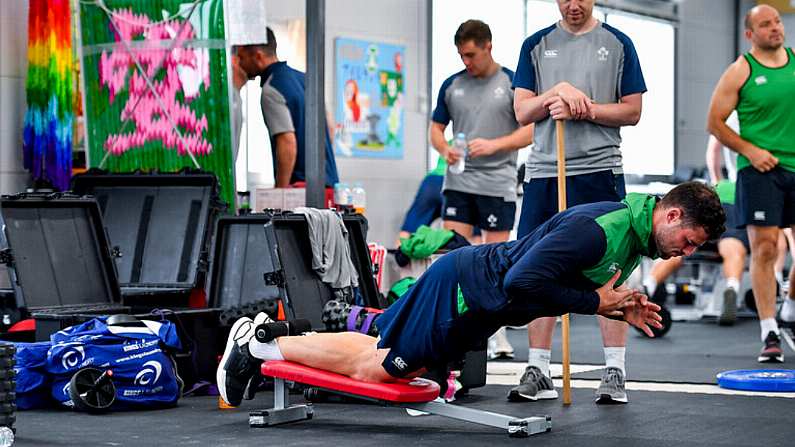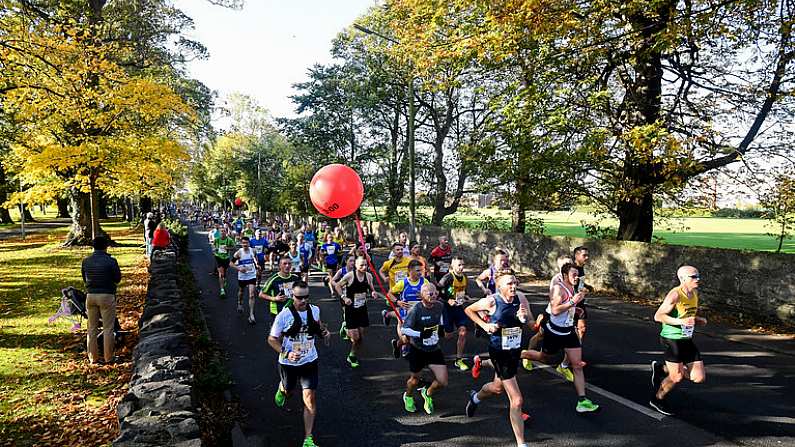Emma Tolan is a qualified nutrition coach with an Honours Degree in Health Promotion and a Masters in Nutrition. Here, she outlines the most important tips when it comes applying the right nutrition to your training.
-----------
Nutrition, recovery and lifestyle factors, such as sleep and stress management, all have a huge part to play in successful training and performance outcomes. If you want to perform at your best, then applying the basics consistently will immediately help you to be more resilient, have greater endurance, and benefit from an improved general well-being
It's easy to get lost in the vast amount of information out there, which can make it more difficult to keep your nutrition in line with your goals. Identifying your starting point and making realistic, sustainable changes will be vital to seeing long term improvements in performance.
Taking on too much at once can lead to short term thinking, and therefore short term benefits.
Meeting with many athletes from different sporting backgrounds, I get a great insight into what is perceived to be the “best” approach to take with nutrition when it comes to sporting performance. There are some common themes however, some of which I will shed some light on below.
Getting that energy balance right
When it comes to nutrition, you need to have an adequate energy intake; that means getting enough calories to meet your everyday requirements, whether that means meeting your basic needs or fuelling physical activity. If you can't meet those demands, tiredness and fatigue will follow, leading to poor performance and recovery.
How many calories you need is dependent on individual factors such as age, body composition, occupation, physical activity levels and other lifestyle factors. You should never follow a generic approach, as it can result in under or over eating for your personal needs.
Why is protein a must?
High intensity training causes muscle tissue to breakdown. One way of limiting this is to ensure that you have a fresh supply of amino acids (the building blocks of protein) in your system in order to delay fatigue and improve focus, alertness and concentration. It is well known that protein intake is important, but how much do we need?
An ideal average amount of protein to consume when training is 1g of protein per pound of bodyweight. This is easily obtained through whole food sources such as lean meats, eggs, fish, dairy etc.
Protein shakes are not a “must”, but they are a convenient source of protein for those who may struggle to hit their goals from food alone. They are not a substitute for food, they are a supplement to be used when necessary. Whole food sources have the edge over whey protein shakes too, as they are more satiating, meaning you feel fuller for longer.
What about rest days?
Just because you are not training does not mean your body stops working. When you take a rest day, you repair muscle and your nervous, immune, and hormonal systems start to recover too, getting back to conditions favourable for growth and performance.
This process helps to improve your performance the next time you train too. If you're well rested, you'll be able to perform to a higher level, making the session more effective.
It's common to see people drop calories on rest days - especially those from carbohydrates - to very low levels, assuming that your body doesn't “need” them. However, this can lead to your body lacking energy for your workouts that follow. Switching to a low (or no) carb diet on off days can cause you to experience low energy, poor cognitive function, irritability, and a poor mood all round. The body uses up your glycogen stores during workouts, so on rest days it gets to work restocking them; carbohydrates are a key source of fuel for that process.
Use carbohydrates to your advantage
Carbohydrates often get a bad rep, but it's an undeserved one. Whether your goal is related to body composition or performance, they can be used to your advantage. For example, what you eat the day before a game is what will stand to you in the last quarter. Stored glycogen from carbohydrates consumed the evening before a game is what enhances your endurance and delays the onset of fatigue.
Carbohydrates also trigger the release of serotonin, which relaxes us and induces a restful sleep. It's not uncommon to hear athletes complain of broken sleep (or in some cases even insomnia) when they've been training hard and cutting their carb intake too much on rest days. Carbohydrates can not only be used to your advantage, but they are key to two important strategies for performance and recovery.
Always be prepared
Preparation is vital when it comes to remaining consistent with your nutrition. Whether you're travelling for work, leisure or on your way to a game, planning ahead and having what you need to hand will help you reach your optimal performance levels.
Being mindful of portion control is important too, but you don't always need to have a weighing scales with you. Using your hand is one useful way to gauge portion sizes.
For guys, aim for two palm sizes of protein, two fistfuls of carbohydrates and two thumb sizes of fats. For females, it's one of each.
This will help to keep you on track, but it is of course possible to choose healthier options while out and about. It's worth taking the time to learn what information to look for on labels and identifying the ingredients used in food that you didn't prepare.
It’s always important to factor in digestion
When it comes to nutrition, you always want to do everything you can to enhance performance. One thing you don’t want is to expend extra energy to digest food, which could take away from what you need to perform at your best.
For example, prior to training or a game, you should try and avoid foods that are high in fibre, and aim for ones that are more easily digested. This might mean choosing white rice over brown during this window. It prevents you from experiencing any discomfort, and means all of your energy is focused on the task at hand.
In addition to this, keep meal size and volume in mind, and consume larger meals about three hours before engaging in sport. After that point, choose lighter, more balanced snacks that lower in dietary fats and need less energy to be digested.
It’s not all about being “perfect”
Nowadays, everyone is trying to achieve the “perfect diet,” but it really doesn't exist. What is perfect? What works for your friend, may not work for you, and vice versa. This is such an important point to understand.
The basic principles are there and should be explored, but you need to apply and adapt them to suit your body and your lifestyle. Whether your goal is to gain muscle, lose weight or perform at your best on the field, experiment with your nutrition and find what works for you.
For more from Emma, follow her Facebook page here.



















